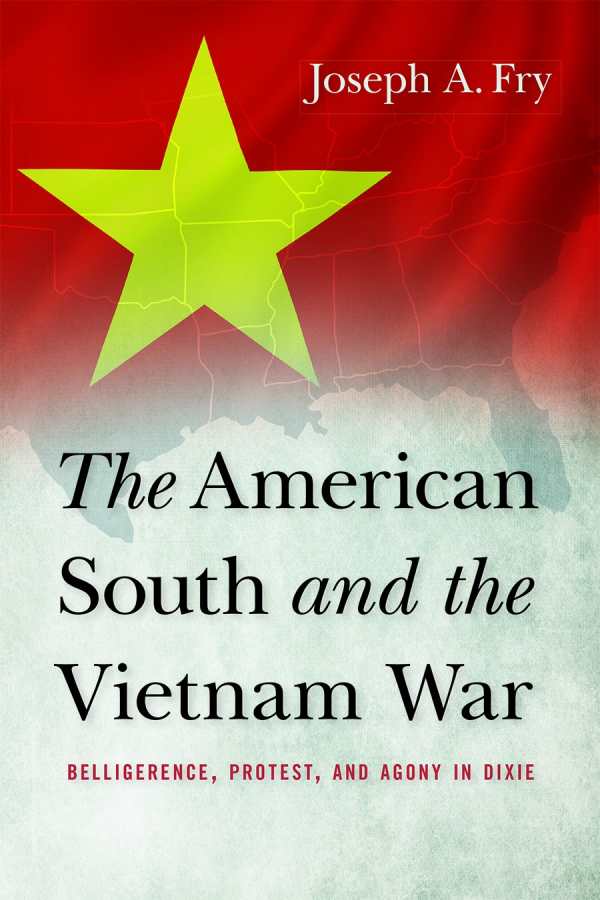The American South and the Vietnam War
Belligerence, Protest, and Agony in Dixie
The South’s storied charm and civility are overshadowed by more hostile tendencies in this account of the role the region played in the Vietnam War. Joseph A. Fry, who has written extensively about the eleven states of the former Confederacy, argues that an inherent aggressiveness toward outside forces, such as “atheistic Communism,” and a hidebound sense of honor, contributed to what many have come to think of as the nation’s singular foreign-policy debacle.
He notes that legislators from the South, with a few notable exceptions, were key in providing the funding and political will to prosecute the war, and it was Lyndon B. Johnson of Texas, who vowed, even as his credibility crumbled, “I don’t want to be the first president to lose a war.” Secretary of State Dean Rusk was from Georgia, and General William Westmoreland was from South Carolina, and southerners served as soldiers in numbers disproportionate to their states’ populations.
Fry considers attitudes formed during slavery and its aftermath as a factor and cites comments about foreign policy down through southern history as evidence, including an editorial in the Wilmington, North Carolina, Morning Star about the proposal to make Hawaii a territory. “Dixie has a sufficient stock of mongrelism without taking in the nut brown islanders of the South Pacific,” the paper opined.
Fittingly, the past is alluded to in a quote at the end of the book by a Mississippi veteran: “Vietnam was much like the Confederacy … a lost cause with thousands of people dying for nothing.”
Reviewed by
Thomas BeVier
Disclosure: This article is not an endorsement, but a review. The publisher of this book provided free copies of the book to have their book reviewed by a professional reviewer. No fee was paid by the publisher for this review. Foreword Reviews only recommends books that we love. Foreword Magazine, Inc. is disclosing this in accordance with the Federal Trade Commission’s 16 CFR, Part 255.

